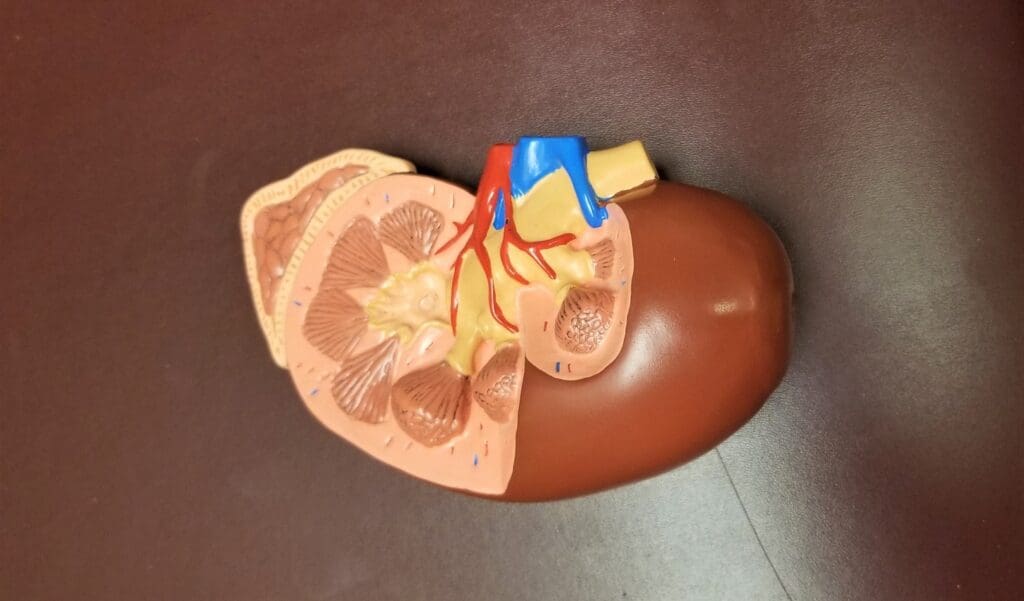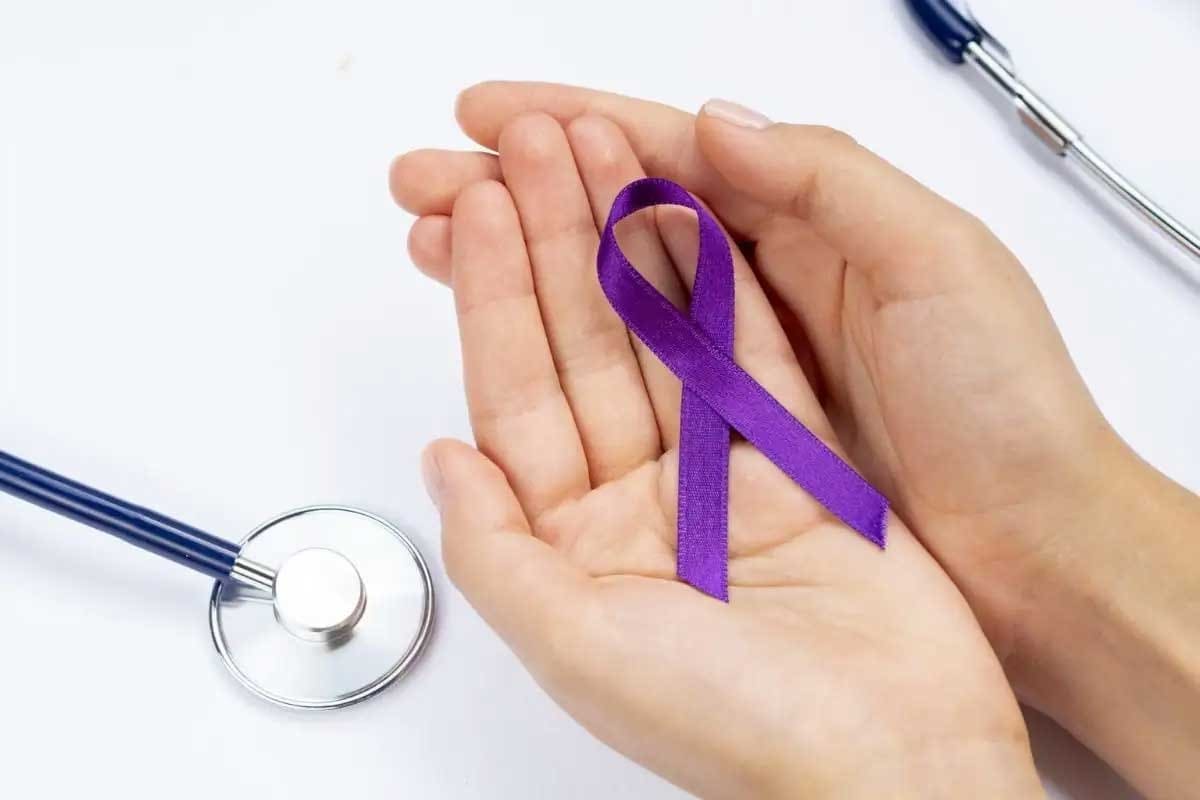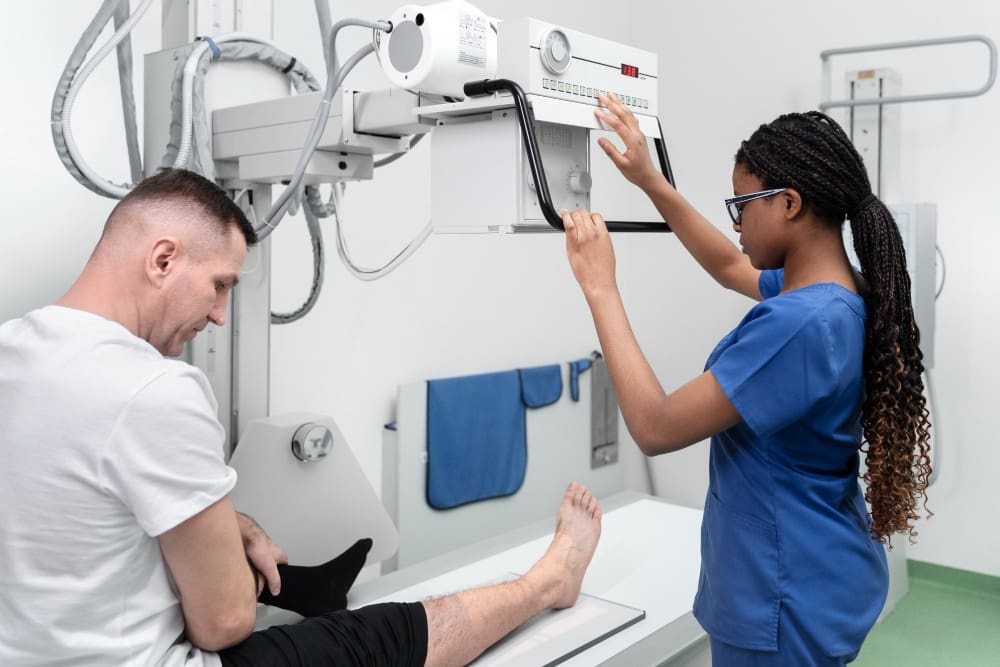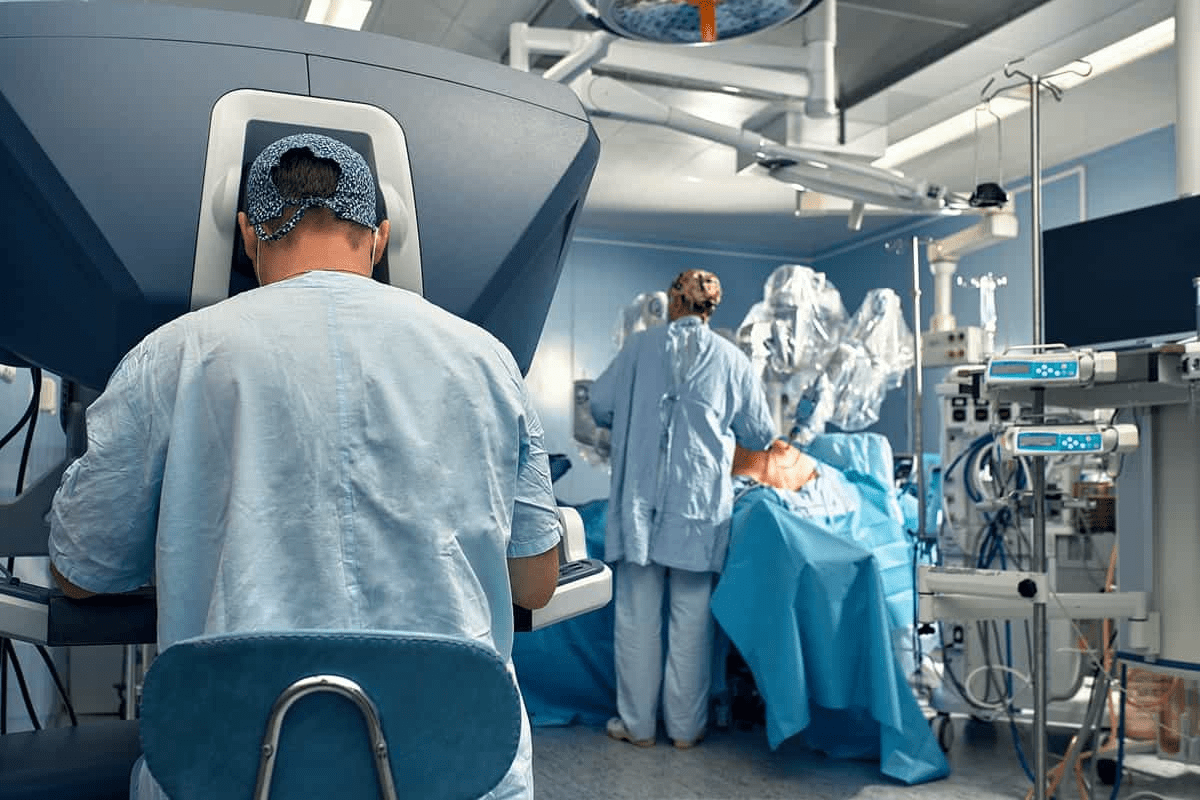Last Updated on November 27, 2025 by Bilal Hasdemir
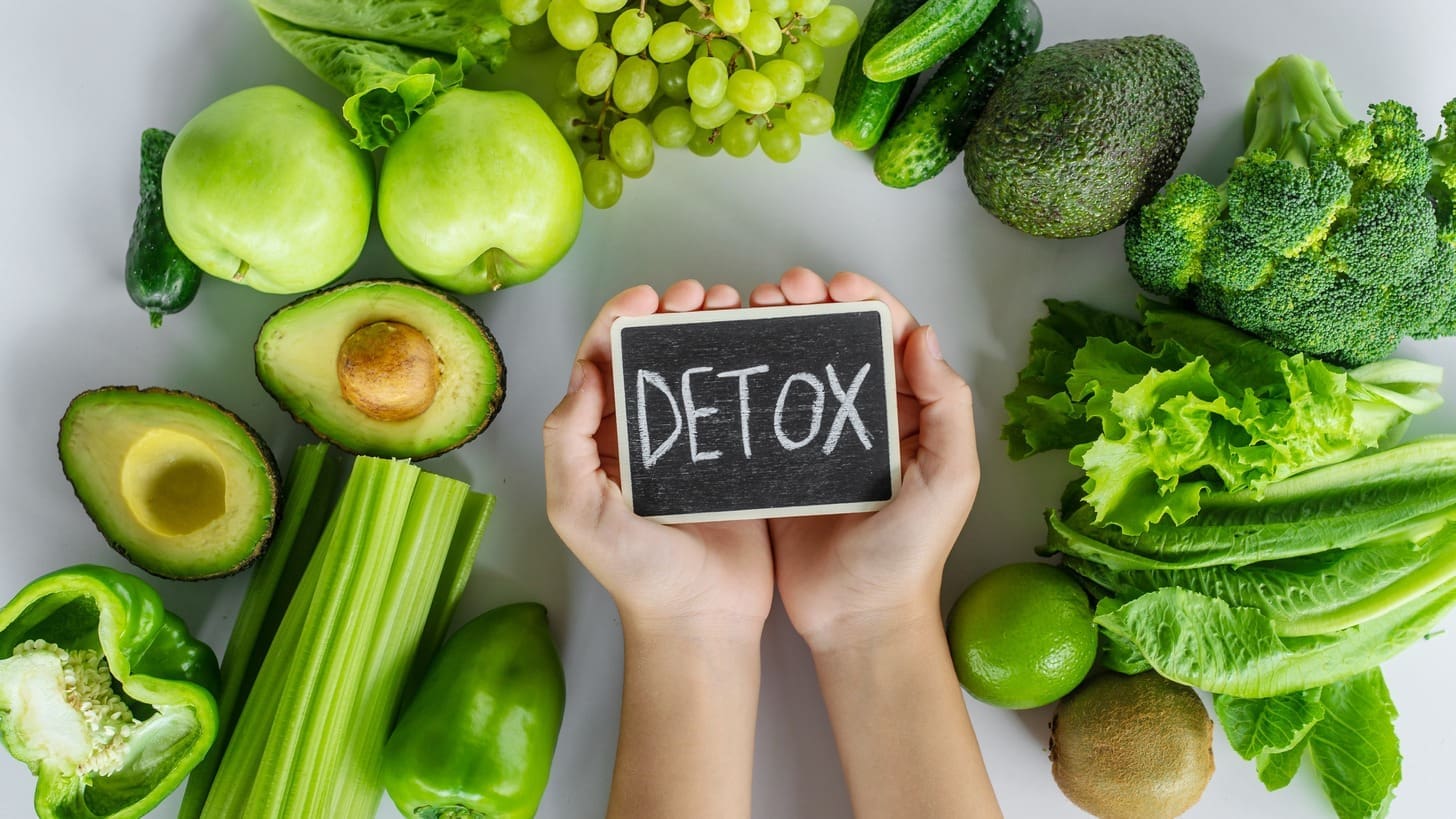
We’ve all heard the idea that our bodies develop tumors to get rid of toxins. But is this really true? At Liv Hospital, we want to clear up the link between detox and cancer.
The human body has its own detox ways, mainly done by the liver and kidneys. These organs work hard to remove bad stuff. This makes it not true that the body forms tumors to detox.
So, what’s the real deal with detox products and their claims? In this article, we’ll dive into the science of detox and tumors. We aim to clear up any confusion on this topic.
Key Takeaways
- The body has its own natural detoxification processes.
- Tumors are not a method for removing toxins.
- Commercial detox products are often unnecessary.
- The liver and kidneys play a key role in detoxification.
- Understanding the science behind detox can help clear up misconceptions.
The Science Behind Tumor Formation
Tumors are not a sign of the body’s attempt to cleanse itself. They result from a mix of genetic, environmental, and cellular factors. It’s important to understand the science behind tumor formation to debunk the myth that tumors are related to detoxification.
Cellular Mechanisms of Tumor Development
Tumor development starts at the cellular level. Genetic mutations disrupt normal cell cycle regulation. Genetic mutations can cause uncontrolled cell growth, a key feature of tumors. We will look into how these mutations happen and affect cell behavior.
The process involves several cellular mechanisms. These include DNA replication errors, epigenetic modifications, and disruptions in apoptosis (programmed cell death). When these mechanisms fail, cells grow uncontrollably, forming tumors.
Genetic and Environmental Factors
Genetic and environmental factors both play big roles in tumor formation. Genetic predisposition can raise the risk of certain tumors. Environmental exposures, like tobacco smoke and UV radiation, can also cause genetic mutations leading to tumors.
We will explore how these factors interact and increase tumor risk. Understanding these risks is key for prevention and early detection.
The Difference Between Benign and Malignant Tumors
Not all tumors are cancerous; there are benign and malignant types. Benign tumors are non-cancerous and usually don’t spread. On the other hand, malignant tumors are cancerous and can spread to other parts of the body.
It’s important to know the difference between these two types for the right treatment. We will discuss their characteristics and what they mean for patient care.
Are Tumors the Way Your Body is Removing Toxins?
Some people think tumors help the body get rid of toxins. This idea is not supported by science and can be harmful. It might make people delay or skip medical treatment for detox methods that don’t work.
Origins of This Dangerous Misconception
The idea that tumors are linked to detox might come from a misunderstanding. Our bodies do have natural detox systems, like the liver and kidneys. But tumors are not part of these systems. They are abnormal cell growths, which can be harmless or dangerous.
Research shows this myth might spread through the internet and some health groups. It’s important to know that tumors are not a healthy way for the body to handle toxins.
Scientific Evidence Debunking This Myth
Many studies have looked into the link between tumors and detox. They all agree: tumors are not part of detox. They can come from genetic changes, environmental factors, or other health issues.
| Aspect | Tumors | Detoxification Processes |
|---|---|---|
| Purpose | Abnormal cell growth, potentially malignant | Removal of toxins and waste |
| Organs Involved | Various, depending on tumor type | Liver, Kidneys, Skin, Lungs |
| Mechanism | Genetic mutations, environmental factors | Enzymatic processes, filtration |
This table shows tumors and detox are two different things.
How This Belief Can Delay Proper Treatment
Thinking tumors are a detox process can cause people to wait too long to see a doctor. Early treatment is key for cancer care. Misunderstanding tumors might lead people to skip proven treatments for detox methods, which could make things worse.
It’s best to trust reliable health sources and talk to doctors about health issues. Our bodies have complex ways to handle toxins, and tumors are not part of them.
How Cancer Actually Develops and Progresses
To understand cancer, we must know how it starts and grows in our bodies. It’s a complex disease with many genetic and cellular changes. We’ll look at the main factors that lead to its development and growth.
The Role of DNA Damage and Mutations
DNA damage and mutations are key in starting cancer. When cells divide, they must copy their DNA correctly. But mistakes can happen, causing mutations. Things like carcinogens can also damage DNA.
If these mutations aren’t fixed, they can cause cells to grow out of control. This can lead to tumors.
For example, mutations in genes that protect cells can stop them from working. Genes that help cells grow too much can also be affected. Over time, these changes can cause cancer.
Cell Cycle Dysregulation and Uncontrolled Growth
Normal cells have rules to control their growth and division. The cell cycle ensures cells divide and grow in an orderly way. But in cancer cells, this control is lost, leading to uncontrolled growth.
Important parts of the cell cycle, like cyclin-dependent kinases and tumor suppressor proteins, are often changed in cancer. These changes let cells divide without stopping, causing tumors to grow.
Metastasis: How Cancer Spreads
Metastasis is when cancer cells move from the original tumor to other parts of the body. This process involves several steps, like invasion, entering the bloodstream, and settling in new organs.
Cancer cells learn to invade and enter the bloodstream or lymphatic system. They can then travel to other organs, starting new tumors. Understanding metastasis is key to finding effective treatments.
| Stage | Description | Key Characteristics |
|---|---|---|
| Initiation | DNA damage and mutations occur | Genetic alterations, mutations in tumor suppressor genes or oncogenes |
| Promotion | Cells with mutations begin to proliferate | Uncontrolled cell growth, evasion of apoptosis |
| Progression | Cancer cells acquire aggressive traits | Invasion, metastasis, angiogenesis |
Understanding cancer’s development and progression is vital. It shows why we need evidence-based prevention and treatment. This knowledge also debunks the myth that tumors are a detoxification process.
Your Body’s Natural Detoxification Systems
The human body has a complex detox system that keeps us healthy. It involves many organs and systems working together. They help get rid of toxins and keep us well.
The Liver: A Primary Detoxification Powerhouse
The liver is key in detoxifying our body. It filters out harmful substances from what we eat. The liver’s role is vital in protecting us from toxins.
The Kidneys: Filtering Blood and Eliminating Waste
Our kidneys are important in detox. They filter our blood to remove waste and excess. They help keep our body’s fluids and electrolytes balanced. The kidneys’ ability to filter is key to our health.
The Role of Skin, Lungs, and Digestive System
The skin, lungs, and digestive system also help detoxify us. The skin gets rid of toxins through sweat. The lungs expel volatile substances. The digestive system, including the gut, helps eliminate waste and supports our immune system.
The Lymphatic System’s Contribution
The lymphatic system is also vital in detox. It helps transport and filter out toxins. It supports our immune function and overall health. The lymphatic system’s role in detox is often overlooked but is essential.
Cellular Detoxification Pathways Explained
Our cells can detoxify in amazing ways. It’s key to dive into this process. Detoxification in cells is complex, with many pathways working together to remove toxins.
Cytochrome P450 Enzymes and Their Function
Cytochrome P450 enzymes are vital in detoxification. They break down many substances, like toxins and medicines. We have different families of these enzymes, each with its own job.
These enzymes turn fat-loving substances into water-loving ones. This makes it easier for our bodies to get rid of them.
Phase I and Phase II Detoxification Processes
The detox process has two main phases: Phase I and Phase II. In Phase I, enzymes like cytochrome P450 change toxins. This gets them ready for Phase II.
In Phase II, the changed toxins are joined with things like glutathione. This makes them easier to get rid of. This two-step process helps remove toxins from our cells.
Antioxidant Defense Systems
Our cells also have systems to fight off damage from toxins. Antioxidants like glutathione and vitamins C and E fight off free radicals. This protects our cells.
These defense systems work with detox pathways to keep us safe. Understanding how they work together helps us see how complex detox is.
Common Environmental and Dietary Toxins
Toxins in our environment and food are a big worry for our health. We face many harmful substances every day. Knowing about these toxins helps our body get rid of them.
Heavy Metals and Industrial Chemicals
Heavy metals like lead, mercury, and arsenic are everywhere. They can harm our nervous system, kidneys, and more. Industrial chemicals, like PCBs and plastics, are also dangerous. We get exposed to them through polluted water, air, and products we use.
Pesticides and Food Additives
Pesticides and additives in our food are toxins we need to get rid of. Pesticides on fruits and veggies can harm us. Some food additives can cause allergies and other health issues. Eating organic and checking food labels can help us avoid these toxins.
Alcohol, Medications, and Metabolic Waste
Drinking too much alcohol and taking some medicines can harm us. Alcohol and some medicines can be hard on our liver. Our body also makes waste as it works. Getting rid of these waste products is key to staying healthy.
Knowing about environmental and dietary toxins helps us stay safe. We can make better choices about what we eat and do. This helps us stay healthy and feel good.
The Commercial Detox Industry: Marketing vs. Science
When we look at detox products, it’s key to know what’s real and what’s not. The detox market has grown a lot. Many products say they can get rid of toxins and make you healthier. But do they really do what they promise?
Popular Detox Products and Their Claims
Detox products like juices, supplements, and teas claim to remove toxins. They say they can clean your liver, kidneys, or colon. They also promise to boost your energy and improve your health. But we should look at these claims carefully.
For example, some detox juices say they can “flush out” toxins. But there’s often no solid science to back this up. Also, some supplements are called “detoxifying agents.” But their real benefits are often overstated or not proven.
Scientific Evaluation of Detox Methods
When checking out detox products, we need to see the science behind them. Some products might mention studies or testimonials. But we should tell the difference between personal stories and real scientific research. Many detox products don’t have strong studies to support their claims.
A close look at the science shows our bodies can detox on their own. Our liver, kidneys, and other organs are great at removing toxins. So, most people don’t need extra detox products.
The Psychology Behind Detox Marketing
The detox industry’s success comes from smart marketing. It plays on people’s worries about health and toxins. Detox products make us think we need to cleanse ourselves because of environmental and food toxins.
“The placebo effect plays a significant role in the perceived benefits of detox products. If consumers believe that a product is working, they are more likely to experience positive effects, even if the product itself has no actual therapeutic value.”
Knowing how detox marketing works can help us make better choices. By understanding these tactics, we can judge detox products better. This way, we can avoid falling for marketing tricks.
Potential Health Risks of Extreme Detox Regimens
Detoxing might sound good, but extreme detox plans can be harmful. Looking into these methods shows some detoxes can harm more than help.
Nutritional Deficiencies and Metabolic Disruptions
Extreme detox plans often cut calories or remove food groups. This can cause nutritional deficiencies. Without needed nutrients, the body’s metabolism can be disrupted. This might lead to fatigue, weakness, and other health problems.
For example, not enough protein can cause muscle loss and slow down metabolism. Some detox diets use very low-calorie foods or liquids. This can slow down metabolism and make it hard to lose weight.
Electrolyte Imbalances and Dehydration
Many detox plans use diuretics or laxatives. This can cause electrolyte imbalances. Electrolytes are important for nerve and muscle function, hydration, and pH balance. An imbalance can lead to muscle cramps, heart problems, and more.
Dehydration is another risk of extreme detoxing. Losing too much water and electrolytes can cause headaches, fatigue, and even organ failure in severe cases.
Impact on Gut Microbiome and Digestive Health
The gut microbiome is key to our health, affecting digestion and immune function. Extreme detox plans, like fasting or using specific products, can disrupt gut bacteria. This can cause digestive problems and affect our health in other ways.
A healthy gut microbiome is vital for nutrient absorption and vitamin production. Disrupting this balance can harm our health and well-being in the long run.
Psychological Effects and Disordered Eating Patterns
Extreme detox plans can also harm our mental health. The strict rules of these diets can cause feelings of deprivation, anxiety, and frustration. This can lead to disordered eating patterns.
Not seeing the promised results can also cause disappointment and a negative body image. This can trigger or worsen body dysmorphia or other mental health issues.
Evidence-Based Approaches to Support Natural Detoxification
Our bodies have systems to get rid of toxins. We can help these systems by eating right and living healthy. It’s important to use methods backed by science to help our bodies detox.
Nourishing Foods for Optimal Liver Function
The liver is key in getting rid of toxins. Eating foods rich in nutrients can help it work better. Cruciferous vegetables like broccoli and cauliflower boost liver function. Leafy greens and citrus fruits also help by providing antioxidants and supporting detox.
| Food Group | Examples | Benefit to Liver Function |
|---|---|---|
| Cruciferous Vegetables | Broccoli, Cauliflower, Kale | Enhances detoxification enzyme production |
| Leafy Greens | Spinach, Collard Greens, Arugula | Rich in antioxidants, supports glutathione production |
| Citrus Fruits | Lemons, Oranges, Grapefruits | Stimulates glutathione production, aids in toxin elimination |
Hydration Strategies for Kidney Health
Drinking enough water is vital for kidney health. It helps these organs filter waste from the blood. We suggest drinking at least eight glasses of water a day, adjusting for your activity level and where you live.
The Role of Physical Activity in Detoxification
Exercise helps detox in many ways. It boosts blood flow, helping toxins reach organs for removal. It also makes us sweat, another way to get rid of toxins. Aim for at least 150 minutes of moderate-intensity exercise per week to help your body detox.
Sleep and Stress Management
Good sleep and managing stress are key for detox. Our bodies repair and detox while we sleep. Chronic stress can slow these processes down. Stress-reduction techniques like meditation or yoga can help keep our bodies healthy.
By adding these healthy habits to our lives, we can help our bodies detox better. This leads to better health and resilience.
Medical Conditions Affecting Detoxification Capacity
Our body’s detox process is key to staying healthy. But, some medical conditions can really slow it down. Detoxing involves the liver and kidneys, and is shaped by genes and the environment.
Liver Diseases and Their Impact
Liver diseases can really mess with detox. The liver is key in breaking down and removing toxins.
- Cirrhosis: Scarring of the liver that makes it less effective.
- Hepatitis: Inflammation of the liver, often from viruses or toxins.
- Fatty Liver Disease: Fat buildup in liver cells, which can harm the liver.
These issues can make it hard for the liver to detox, causing toxins to build up.
Kidney Dysfunction and Toxin Clearance
The kidneys are vital for removing waste from the blood. When they don’t work right, it’s harder to get rid of toxins.
- Chronic Kidney Disease (CKD): Gradual loss of kidney function over time.
- Acute Kidney Injury (AKI): Sudden loss of kidney function, often from illness or meds.
Kidney problems can lead to toxin buildup, causing health issues.
Genetic Variations in Detoxification Enzymes
Genes can affect detox enzymes. Some people might have genes that change how these enzymes work.
- Increased susceptibility to toxins: Some might be more vulnerable to toxins’ harm.
- Variable response to medications: Genes can influence how drugs are broken down.
Knowing about these genetic differences helps tailor detox plans for each person.
Medical Approaches for Genuine Toxin Exposure
Understanding medical approaches for toxin exposure is key to effective treatment. Toxins can come from environmental pollutants, industrial chemicals, and some medications. Quick medical help is needed to avoid serious health issues.
When Medical Detoxification Is Necessary
Medical detox is needed for toxins that can harm or be deadly. This includes heavy metals like lead or mercury, and industrial chemicals. Doctors decide on detox based on how bad the exposure is and the patient’s health.
“The goal of medical detox is to remove toxins quickly and safely,” says a toxicology expert. “Treatments vary based on the toxin and how much exposure there was.”
Chelation Therapy for Heavy Metal Poisoning
Chelation therapy uses agents to remove heavy metals from the body. These agents bind to metal ions, making them easier to remove. It’s very effective for lead, mercury, and arsenic poisoning.
For example, someone poisoned by lead in water might get chelation therapy with EDTA. This treatment can greatly lower lead levels in the body, reducing health risks.
Dialysis and Other Medical Interventions
Severe toxin exposure might need dialysis to quickly remove toxins from the blood. This is important for people with kidney failure. Other treatments include hydration and nutrition to help the body recover.
- Supportive care to manage symptoms and prevent further exposure
- Monitoring of kidney and liver function to assess the body’s detoxification capacity
- Administration of antidotes or other specific treatments for certain toxins
The Role of Specialized Poison Control Centers
Poison control centers are vital for managing toxin exposure. They offer expert advice on diagnosis, treatment, and management. These centers have professionals who know a lot about toxic substances and their effects.
If you’re exposed to toxins, calling a poison control center can be lifesaving. They can guide you on the best steps to take, reducing health risks.
Conclusion: Embracing Evidence-Based Health Practices
As we wrap up our look into whether tumors remove toxins and detox regimens work, it’s clear. Understanding how our body naturally cleanses itself is key. The science is clear: tumors are not a healthy way for the body to deal with toxins. Our body has its own ways to get rid of waste and toxins.
The liver, kidneys, skin, lungs, and lymphatic system all work together to remove waste. Instead of trying untested detox diets or products, it’s better to support these natural processes. This means eating foods rich in nutrients, drinking plenty of water, exercising regularly, and managing stress.
The detox industry often promises quick fixes but can actually harm us. By sticking to proven health practices, we can stay healthy without unnecessary treatments.
In the end, it’s important to follow evidence-based health practices to help our body detox naturally. We should be careful of claims that aren’t backed by science. Instead, we should rely on scientific evidence to make health choices that truly benefit us.
FAQ
Is detox real?
Yes, detox is real. Our bodies naturally get rid of toxins and waste.
Can your body detox itself?
Yes, our bodies detoxify themselves. Organs like the liver and kidneys help.
Is it bad to detox your body?
Not all detoxes are safe. Some can cause health problems like nutritional deficiencies.
Does your body cleanse itself?
Yes, it does. Organs like the liver and kidneys work to filter waste.
Does detox actually work?
It depends on the detox method. Some methods are backed by science, while others are not.
Is it healthy to detox?
Yes, if done right. Eating well, staying hydrated, and exercising can help your body detox naturally.
Is it good to detox your body?
It can be, if you use proven methods. But extreme or untested methods can harm you.
Does a detox actually work?
Some detoxes might help a bit. But many commercial detoxes don’t have scientific proof. A healthy lifestyle is usually better.
Is cellular detox real?
Yes, it is. Cells have ways to get rid of toxins, like enzymes and antioxidants.
Are tumors the way your body is removing toxins?
No, tumors are not a detox method. They form due to genetics and environment, not detox.
What happens when you detox your body?
Supporting detox helps get rid of toxins. This can make you feel better and healthier.
Do detoxes actually work?
It depends on the detox method. Science-backed detoxes can help, but unproven ones might not.
References
Texas A&M University (VetMed). Detoxification (PEER). https://vetmed.tamu.edu/peer/detoxification/
University of Wisconsin Department of Family Medicine. Removing Toxins (handout). https://www.fammed.wisc.edu/files/webfm-uploads/documents/outreach/im/handout-removing-toxins.pdf
Healthline. How to Detox Your Body. https://www.healthline.com/nutrition/how-to-detox-your-body



